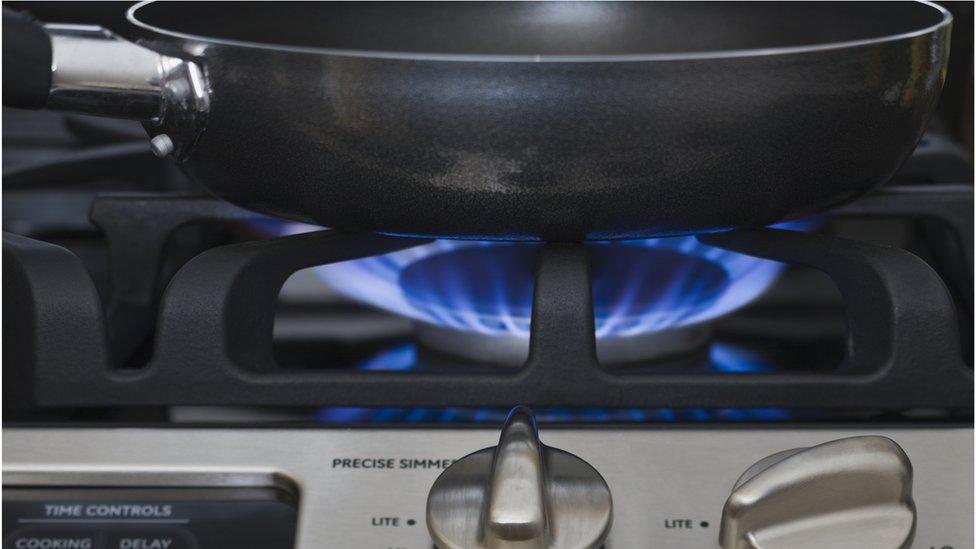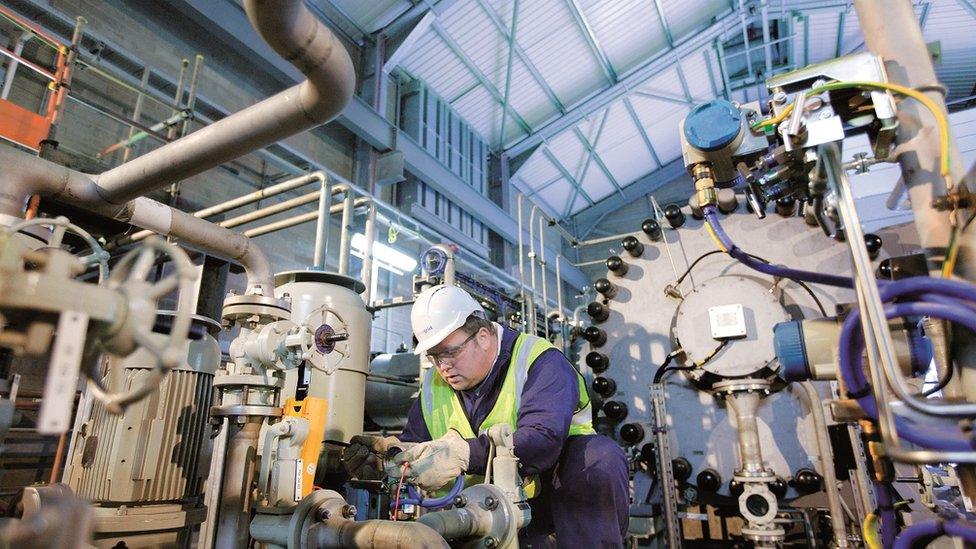National Grid sells majority stake in gas pipe network
- Published

National Grid has agreed to sell a majority stake in its gas pipe network to a group of investors.
The UK's power network operator said it would sell a 61% stake in the distribution business in a deal that values the division at about £13.8bn.
The consortium of investors is led by Australian asset managers Macquarie, with backing from Qatari and Chinese state investors.
National Grid will return £4bn to shareholders after the deal.
The auction for the gas network has been running for at least a year and saw the Macquarie consortium fight off a raft of competitors, including a team led by Chinese investors.
National Grid's distribution arm comprises four UK gas networks. Together they distribute gas on behalf of gas shippers to approximately half of the UK's connected households and a substantial proportion of the UK's business premises.
The deal needs clearance from the European Commission to go ahead. Assuming it is not blocked, National Grid expects the transaction to complete on or before 31 March next year.
Low risk?
National Grid said that the consortium was also in talks to acquire an additional 14% of the business at a similar price to the agreed transaction.

The full consortium comprises Macquarie Infrastructure and Real Assets, Allianz Capital Partners, Hermes Investment Management, CIC Capital Corporation, Qatar Investment Authority, Dalmore Capital and Amber Infrastructure Limited/International Public Partnerships.
Hermes said it had been "actively pursuing" an investment in National Grid's gas distribution business in the UK for the past year, saying it offered the prospects of "low level of operational risk" and "relative certainty of earnings".
However, one expert warned the business faced challenges.
"In buying this gas infrastructure, Macquarie and other investors are surely aware of how old the UK's gas grid is and the extent of maintenance needed to keep it going," said Jonathan Marshall, energy analyst at the Energy and Climate Intelligence Unit.
"The Climate Change Act requires the UK to cut emissions by 80% on 1990 levels by 2050, and this will impact gas use in the UK.
"The need to decarbonise residential heating is becoming increasingly apparent to the government and to the industry, and could be considered a long-term threat to the returns expected by the buyers in this deal."
Public services union Unison, which is the largest union in the gas industry, said it was "dismayed" by Macquarie's involvement in the deal.
"When Macquarie ran Thames Water, the end result was poorer customer service, higher bills, massive debts, complex tax structures and profits siphoned off to its parent company in Australia," the union said.
"Unison fears a similar fate lies in store for the UK's network of gas pipelines and the country's consumers more generally."
- Published24 September 2016

- Published17 June 2016
